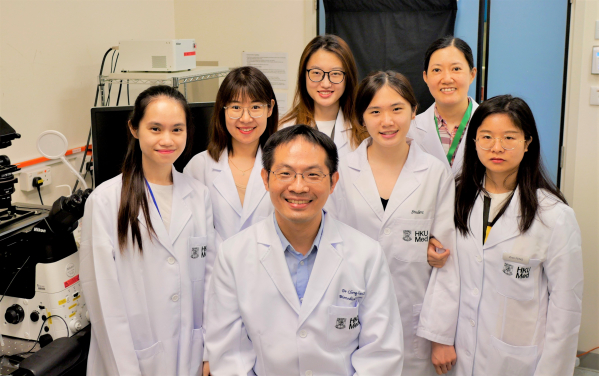HKUMed identifies a new pathway to prevent invasive cell migration of cancer cells by blocking PI(3,4)P2 lipid synthesis and receptor recycling
A research team of cell biologist in LKS Faculty of Medicine, The University of Hong Kong (HKUMed) has discovered how to impede invasive cell migrations by blocking the synthesis of PI(3,4)P2 lipids that are excessively produced in cancer cells. By the inhibition of PI(3,4)P2 synthesis, invasive cell migrations are effectively suppressed in various models, including in the triple-negative breast cancer cell line. This study has revealed a druggable target to suppress cancer metastasis, the malignant spread of cancer cells, which ranks highest in the cause of health-related mortality in Hong Kong[1]. The findings have been published in Proceedings of the National Academy of Sciences of the United States of America (PNAS) [link to publication].
PI(3,4)P2 as the messenger to promote invasive cell migration
Cells synthesise various lipids and protein receptors on the cell membrane, in order to maintain the functional organisation of the tissue. For example, integrins are protein receptors on the cell membrane that provide the physical anchorage between the cell and surrounding tissue. Malignant cancer cells often utilise the invadopodium, a subtype of integrin-mediated adhesion with abundant PI(3,4)P2 lipids, to break the tissue barrier and facilitate cancer metastasis. This study has uncovered the molecular mechanism in which PI(3,4)P2 lipids weaken the stability of cell adhesion, accelerate the redistribution of integrins, and pave the path for the malignant cell invasion.
‘Identifying PI(3,4)P2 lipids, together with cytoskeletal factors, as the agent that actively reshapes the cell membrane and orchestrates the cell migration marks a small but important step forward to our understanding of the mechanism of cancer metastasis,’ said Dr Yu Cheng-han, Assistant Professor at the School of Biomedical Sciences, HKUMed, who initiated the study. ‘The conclusion derived from our report will be applicable to other research communities and provide translational opportunities in clinical research. Potentially, pharmaceutical and biotech industries may benefit from these findings and be interested in developing new compounds and technologies to address the issues associated with cancer metastasis.’

